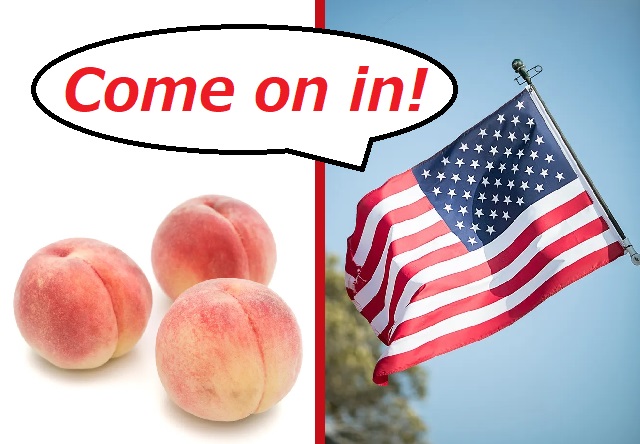U.S. lifts all agricultural import bans for Fukushima, Tohoku region of Japan

A decade after the 3-11 earthquake, tsunami, and nuclear incident, all Japanese produce from the affected areas has an open path to the U.S.
It’s now been more than ten years since the massive earthquake and tsunami that struck Japan on March 11, 2011, and while life has gone back to normal for most of the country, the effects of that tragic day are still being felt by many in Japan’s northeastern Tohoku region, where the disasters were centered. However, a large step on the road to recovery was completed this week, with the announcement that the U.S. has removed all import restrictions on agricultural products from the Tohoku and Kanto (east Japan) regions.
The restrictions were put in place following the nuclear accidents at the Fukushima Daiichi Nuclear Power Plant, which was damaged during the disasters, as a precaution against possible radioactive contamination of local produce and animal products. Roughly 100 items, such as rice and mushrooms, from a total of 14 prefectures were barred from import into the U.S.
The decision to remove the import bans was made by the U.S. Food and Drug Administration, which posted a statement on its website on September 21 (U.S. time), stating:
“after an extensive analysis of Japan’s robust control measures that include decontamination, monitoring and enforcement; after reviewing the results of 10 years of sampling food products from Japan; and after determining a very low risk to American consumers from radioactive contaminated foods imported from Japan, FDA has decided that the [import restrictions are] no longer necessary to protect public health.”
The FDA also stressed that it is remaining diligent in assessing the safety of the newly Japanese agricultural products via a combination effects of in-Japan compliances and FDA surveillance and sampling.
The U.S. is the world’s third-largest importer of Japanese agricultural products, and while Americans may not be clamoring for Japanese-grown rice, Japan’s gourmet mushrooms, such as shiitake, are world-renowned. Fukushima’s peaches, the pride of the prefecture, won praise from visiting U.S. Olympic athletes this past summer, and access to the American market should be an economic blessing to Tohoku farmers still coping with the economic-hardship after-effects of 3-11. Moreover, a spokesperson for Japan’s Ministry of Agriculture, Forestry and Fisheries expressed hope that approval from the U.S. will encourage the five remaining countries that still have bans in place for certain Japanese food products, such as nearby trading partners Korea and China, to consider lifting their restrictions as well.
Sources: Mainichi Shimbun via Yahoo! Japan News via Hachima Kiko, FDA, NHK News Web
Top image: Pakutaso (1, 2) (edited by SoraNews24)
● Want to hear about SoraNews24’s latest articles as soon as they’re published? Follow us on Facebook and Twitter!
Credit:

0 comments: